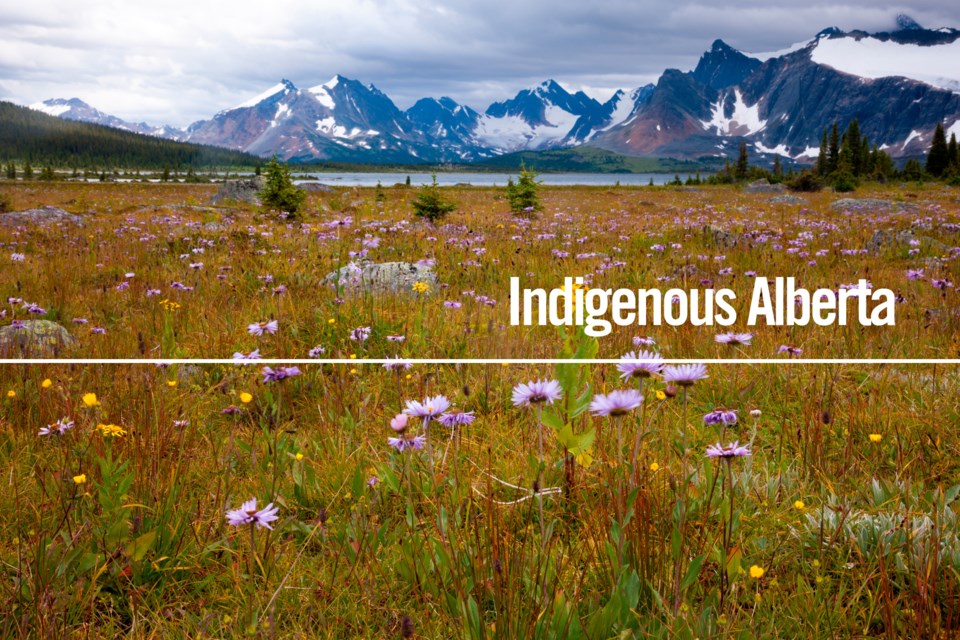Andrea Levey admits that her frustration over the slow pace of change in the Edmonton Police Service (EPS) is being taken over with hope in the new leadership.
“There’s definitely been some frustration. It’s a difficult role to be in. Working as an Indigenous person in a colonial institution is always hard,” said Levey, a civilian member with EPS for almost eight years.
Levey, who is Anishinaabe, serves as EPS’s Indigenous equity advisor.
With Chief Dale McFee sworn in as the new head of EPS in February 2019, Levey says she is already seeing change. And she doesn’t believe it’s because McFee is Métis.
“It’s where his heart is as a person. Regardless of his identity, he wants to see change. He is advocating for people to be safe and whatever safety looks like for people. I think he’s really open for that; has the courage for it,” said Levey.
McFee’s latest focus is the creation of the Nîsohkamâkewin Council, which has been in the works for the past year. Nîsohkamâkewin is Cree for 'the act of helping'.
The council will consist of 16 to 18 Indigenous people who will advise various units within EPS on the internal changes necessary to implement the police-based Calls to Action from the Truth and Reconciliation Commission’s 2015 final report, which dealt with the legacy of Indian residential schools, and the Calls for Justice from the National Inquiry on Missing and Murdered Indigenous Women and Girls (MMIWG) final report (2019).
Interested applicants can direct questions and letters of interest to [email protected]
Levey said the Nîsohkamâkewin Council is the latest “revised edition” of an Indigenous body that has been operating within EPS for almost 15 years. The council takes over from the Indigenous Community Liaison Committee (ICLC), whose purpose was “much more about building better relationships in more of a general sense,” Levey said, adding that “some communities, some community members” would say there was success in meeting that goal.
“It’s a struggle to get this kind of work done (with EPS). It honestly is. There’s a huge organization that’s built on this and with the introduction of Chief McFee, we’ve really seen a turn around in appetite for this kind of work. And I think that’s leading the momentum here,” said Levey.
“We’re looking at structural and systemic racism which is in the form of policies and programs and things like that that have informed the way of policing since the creation of policing,” she said.
On the ground, the Indigenous community would feel those changes through “interactions (that) are safer for people,” Levey said.
“Safety is a subjective experience for a lot of people and as Indigenous people working with policing services, it’s definitely not a safe experience. That’s all policing. Even government bodies there’s a lot of trauma that’s there,” she said.
Levey uses as an example the reporting of missing people.
When the MMIWG national inquiry was in Edmonton in November 2017, many incidences were recounted by family members of how they battled with police, whether EPS or RCMP, to have their concerns taken seriously.
“We understand that missing persons reporting, that process, is an entirely traumatic experience for a majority of people. So when we’re looking at the policies and processes involved in that, when we look at the risk assessment, this gives community members a chance that we can work together to make sure that risk assessment is done… in the best possible way that meets the community's needs,” she said.
Even changes for language in policies, which the council would advise on, including changing gender or anti-Indigenous language or terminology or biases to something that is culturally-safe or trauma-informed, will have a “trickle-down effect” to what happens on the street as the policies define and regulate this action, said Levey.
The council would also be involved in advising on training changes for recruits.
EPS units have been mandated by McFee to implement the advised changes from the Nîsohkamâkewin Council. Levey expects some of the “easier” changes will be experienced in the fall of 2021.
Recruitment for council members is underway. Ten members from the ICLC will be joined by six to eight more Indigenous people. The application deadline is Jan. 31, with selection to take place in February. The first full council meeting is expected to be held in March. Levey said the work of the council will be a three-to-four-year process.
Levey says that 16 to 18 people making decisions could be challenging, but it’s necessary to have every facet of the Indigenous community represented. She said the council will discuss Indigenous governance models for operation and make their own decision on how to proceed. She expects some sub-committees will be formed to deal with specific issues.
“The objective of this (council) is not to make people wait even longer than we’ve already been waiting. This is to get that change going and I know the chief and the entire service is wanting this to get done right away,” said Levey.
By Shari Narine, Local Journalism Initiative Reporter
Read more from cfweradio.com



